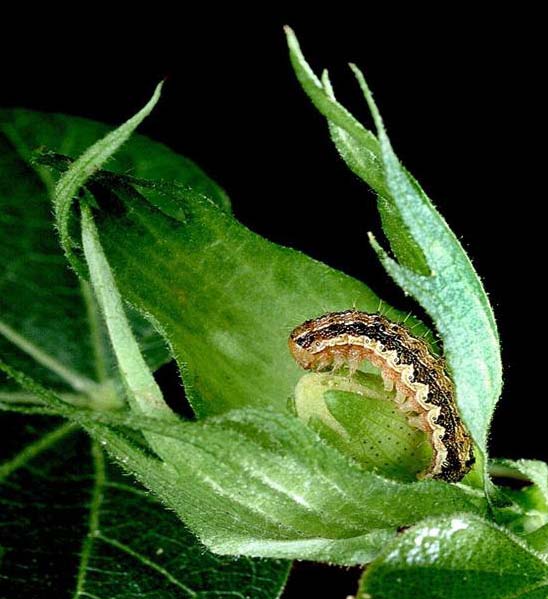Ecology and Environment
Patterns of diversity and conservation status of freshwater fishes in the tributaries of river Ramganga in the Shiwaliks of the Western Himalaya – A paper in Current Science
Posted on 20 Mar, 2011 09:47 PMOne tributary was within a protected area (PA; Corbett National Park); the other two were outside the PA (Lansdowne Forest Division). Cast nets were used for fish sampling, which was done from 9.00 a.m. to 5.00 p.m.
Pest and disease management in organic, natural, sustainable agriculture - Presentations from the South Asia Conference on "Outstanding Organic Agriculture Techniques", Bangalore organised by OFAI (2009)
Posted on 20 Mar, 2011 06:17 PM This set of presentations from the conference on Outstanding Organic Agriculture Techniques held during September 2009 at Bangalore deals with pest and disease management practices in organic farming, which rely primarily on preventive and integrated methods.
This set of presentations from the conference on Outstanding Organic Agriculture Techniques held during September 2009 at Bangalore deals with pest and disease management practices in organic farming, which rely primarily on preventive and integrated methods.
Crop production and plan protection in organic farming
This paper by S R Sundararaman presents organic farming as the only recourse for farmers, to save both livelihood and the health of the soil. Organic farming methods enable farmers save money and turn their farmyard waste into value-added products for increasing crop production. Farmers will not have to be dependent on agri-business companies for seeds, fertilizers and pesticides. Our self-reliance is thus preserved. A large portion of our country's foreign exchange is used to pay for the import of petroleum products. By going organic we will also help our country save on valuable foreign exchange. Our land will keep giving us returns for extended periods of time unlike farming as per the green revolution, where the land stays productive for a short time and then becomes sterile.
The uppermost question in the minds of farmers who have recently converted to organic farming or who want to turn organic is how to ensure that crop production does not reduce and how to protect the plants from disease, without the chemical fertilizers and pesticides that their fields have grown used to. This paper provides the answers and it also seeks to reassure all farmers that there is no farm which cannot turn around and produce quality crops in sufficient quantity, using organic farming methods.
First Indian Forest Congress 2011, Indian Council of Forestry and Education, 22nd – 25th November 2011, NASC Complex, New Delhi
Posted on 19 Mar, 2011 02:30 PMForests in a changing world
Organizer: Indian Council of Forestry and Education
Venue: NASC complex, DPS Marg, Pusa, New Delhi
South Asian Conference on Contemporary Environmental Perspectives – Hidayatullah National Law University, 25th – 27th March, 2011, Raipur (Chhattisgarh)
Posted on 19 Mar, 2011 12:41 PMA Crusade for the Cause of Environment Protection
Organizers:
- Hidayatullah National Law University
- Confederation of Indian Industry (CII)
- Bar Council of India (BCI)
- World Wide Fund for Nature (WWF)
Interactive session on "Thinking the future: Coffee, Forests and People, Conservation and Development in Kodagu", AgroParisTech University, 19th March 2011, Alliance Française de, Bangalore
Posted on 17 Mar, 2011 10:24 AMOrganizer:
- AgroParisTech University, France
Vacation training programme on Bio-Resources at Ashoka Trust for Research in Ecology and the Environment – Apply by 15th April
Posted on 16 Mar, 2011 04:10 PM6th vacation Training Programme on Bio-Resources funded by the National Bio-Resource Development Board, Department of Bio-Technology, Government of India will be conducted by Ashoka Trust for Research in Ecology and the Environment (ATREE), Bangalore, during summer 2011. Applications are invited from interested Class X candidates for the programme.
Tsunami, mangroves and market economy: No lessons learnt - Article by Devinder Sharma
Posted on 16 Mar, 2011 02:40 PMThe terrible earthquake and the disastrous sweep of the tsunami has left a trail of suffering in Japan. As our hearts go out to the Japanese, and to the impacted people, every natural disaster should provide us an opportunity to access where we have gone wrong.
Earthwatch Institute is looking for Research Manager - Apply by 1st April 2011
Posted on 10 Mar, 2011 11:50 AMForwarded to the portal by : Pranab J Patar
Earthwatch Institute is an international environmental organization that engages people in scientific field research and education to promote the understanding and action necessary for a sustainable environment
Release of the report on "Life, Livelihoods, Ecosystem, Culture: Entitlements and Allocation of Water for Competing Uses", Forum for Policy Dialogue, 16th March 2011, New Delhi
Posted on 09 Mar, 2011 11:33 AMOrganizer: Forum for Policy Dialogue on Water Conflicts in India
Venue: WWF India Conference Hall, Lodhi Road, New Delhi
Review of Krishna Water Disputes Tribunal - A report on Krishna river water allocations
Posted on 08 Mar, 2011 04:42 PMThis is a review of KWDT-2 report analysing how it has failed to protect the long term sustainable productivity and ecology of the river basin. It has also failed to understand the water allocations done by previous KWDT-1. KWDT-2 also negated the earlier KWDT-1 allocations at the same time categorically stating that it cannot change water use allocations of previous award.




